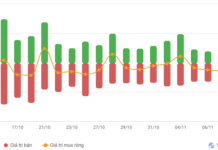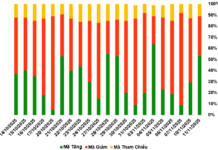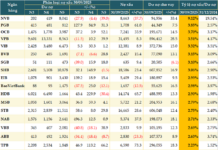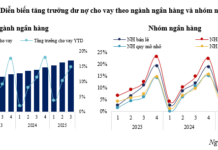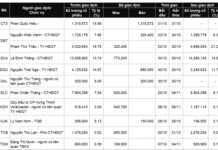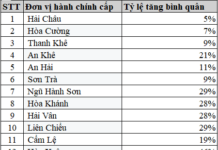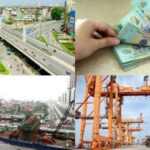The Ministry of Agriculture and Environment has proposed several key changes to the draft Law on Land Law Amendments for 2024. The proposal, which is currently open for feedback, consists of 68 items, grouped into three main categories.
One significant departure from the current land valuation principles is the removal of “market principles” as the primary determinant of land prices. Instead, the proposed changes emphasize the role of the state in representing the owner’s interests and making decisions about land prices. The results of land valuation methods will serve as a reference for the state when determining land prices.
Regarding land price tables, the Ministry has put forward two options for amendments. The first option suggests that the government issue land price tables once every five years, instead of annually as currently practiced. These tables would be constructed based on zones and locations, with the potential for more detailed assessments down to the individual land lot in areas with digital cadastral maps and land price databases. Provincial People’s Committees would retain the authority to make necessary adjustments to the tables during the five-year period.
The second option proposes abandoning specific land prices and reverting to the use of adjustment coefficients (K coefficients). These coefficients represent the increase or decrease ratios for different zones and locations, used to adjust the prices in the land price tables annually. Provincial People’s Committees would be responsible for issuing these adjustment coefficients, starting from the year following the five-year application period for the land price tables.
The Ministry has provided explanations for these proposed amendments, acknowledging the challenges faced in determining state land prices in the primary market due to their dependence on secondary market prices and the assessments of land valuation consultants. Additionally, determining specific land prices can be complicated by various factors, including input data, market fluctuations, and the expertise, ethics, and experience of the valuers themselves, as well as investors’ project proposals.
As stated in the draft proposal, the current lack of uniformity in valuation results fails to accurately reflect the true nature of land prices in both the primary and secondary markets. The Ministry also believes that the current Land Law does not adequately empower the state to regulate and influence land prices and their fluctuations.
Given that land is a critical factor in economic and social development, the Ministry deems it necessary to amend the law to ensure that the state has control over land prices and can make decisions about prices in the primary market, thereby maintaining market stability.

Real estate in Ho Chi Minh City’s central area. Photo: Quynh Tran |
These proposed changes come amidst concerns raised by experts about the potential for land price tables to chase “artificial” market prices without scientific basis.
Dr. Pham Viet Thuan, Director of the Institute of Economics, Finance, and Environment in Ho Chi Minh City, noted that while the 2024 Land Law stipulates market-based land price determination, it does not require land price tables to closely follow fluctuating market prices. During the drafting of Decree 103, the Ministry of Finance initially intended to avoid significant changes in financial obligations related to land, but the implementation faced practical challenges, particularly the vast disparity between residential and agricultural land prices.
Dr. Tran Viet Anh, Vice Principal of Hung Vuong University, pointed out the impact of various factors on land prices, such as road construction, bridge building, the arrival of major investors, and more recently, the province merger effect. He cautioned that using inflated land prices from hot market periods as data for constructing land price tables could lead to tables that do not reflect reality.
In the draft proposal, the Ministry of Agriculture and Environment also suggested expanding the types of land that can be converted for commercial residential projects. Under the new proposal, eligible land would need to meet the requirements of land use planning and planning but would not be restricted by the current requirement of having “residential land or residential and other land.”
At a conference held on July 10, Prime Minister Pham Minh Chinh announced that the government would propose amendments to Resolution 18, serving as a basis for revising the 2024 Land Law to address issues related to land revocation, land finance, and price control. He instructed relevant agencies to study and propose amendments in several areas, including land management and utilization policies, land prices and land finance, and policies related to land allocation, leasing, and purpose conversion.
Ngoc Diem
The Hottest News: Ho Chi Minh City Implements a 3-Tier Land Pricing System
The leaders of Ho Chi Minh City’s People’s Committee have initiated the process of establishing land price tables for the first time, in accordance with the Land Law of 2024.
Is the New Land Price List for 2026 Going to Shake Up the Market?
To prevent shockwaves throughout the real estate market, it is imperative to bring transparency to the entire property valuation process and its underlying data. Land valuation cannot be a black-box operation; the valuation map, adjustment factors, calculation methods, and input data must all be disclosed to the public.
Should the ‘Market Price’ Principle be Removed from Land Valuation?
Setting land prices is a delicate balance between macroeconomic regulation, reflecting practical realities, and maintaining social trust.
The Painful Wait: Investors Left in Tears Over Delayed Land Valuations
“Land prices are a critical bottleneck within themselves. Many localities are struggling with a multitude of stalled projects, unable to move forward. A significant reason for this is the inability to determine land prices,” says PGS.TS. Nguyen Quang Tuyen, Vice Chairman of the School Board and Head of the Economic Law Faculty at Hanoi Law University.



